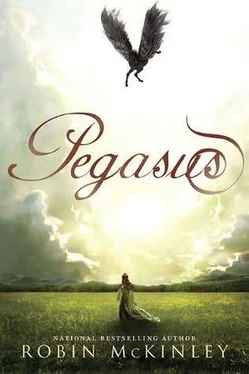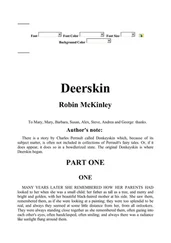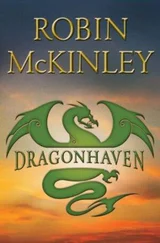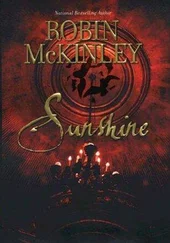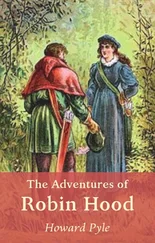And so it was decided that Thowara and his two brothers would go with the human company; with Thowara, and under his command, would go five more, and another ten would follow, as soon as the message went back to Rhiandomeer that they were needed.
And Danacor would be carrying the Sword.
It had happened that way several times before, that the young heir rode out with the Sword while the elder ruler remained in the city, to govern and think and negotiate and plot. King Corone formally handed the Sword over to his eldest son—the Sword having agreed to be so handed—and the ceremony was a brief but very beautiful one. But what was a glorious tale in the history books was grim and awful when it was happening to you.
Dinner on Danacor’s last evening was hushed and tense. The king and queen from long practise of difficult conversations did the best, chatting about ordinary things without ignoring the fact that Danacor was riding to war. Several times when runners or other messengers concerning the campaign came to whisper in the king’s ear, the king responded as if the whispers were no more alarming than those on the night before a feast day, when the guild of flute-players was feuding with the guild of viol players and there was the dire threat that neither would appear. Danacor tried to take the lead from his father, but was only half successful. His left hand, as if involuntarily, kept touching his belt, where the Sword had hung this afternoon for the first time, and where it would hang tomorrow for . . . no one knew how long. Their pegasi had been present only briefly; Thowara and Oyry had preparations to make for the morrow—and even Ebon had said, Best I go with my brothers now, dearheart. Sylvi had nodded, feeling the difference between them again yawning like a void—or like the beak of a roc, which was big enough to catch and swallow a pegasus. Rhiandomeer seemed a million years ago.
Sylvi finally managed, at the end of the evening, to slip up to Danacor to say a private good-bye; and then she could find no words for it.
She looked up at him—she remembered when he was her age now, and she not much more than a toddler, and he had been so big and fine and grand, and she was so proud to have him as her big brother. She had been much more dazzled by the manifest splendour of her big brother than by the fact that her parents were king and queen of the country; being a king and queen seemed chiefly to mean talking to a lot of boring people about boring things (and being a princess seemed to be about being polite to people you didn’t want to have to speak to at all, and learning boring indoor book-ink-and-paper lessons even on sunny days), while Danacor was spending his afternoons in the practise yards with the horsemaster and the master-at-arms—and occasionally the queen, who didn’t like boring indoor things very much either. Sylvi, when she could escape nursemaid and governess, would hang on the fence and watch.
Her mother told her years later that her governess had let her escape far oftener than a stricter or more traditionalist educator would have. The young woman gravely told the queen that fresh air was always good for a growing child, and that since children will find people to idolise, it seemed to her a good thing to indulge the lady Sylviianel in idolising such a fine young man.
The queen told this story grinning at the memory: “Scai was such a serious young woman. Her mother had stood in your grandmother’s army, and it makes me wonder what effect it had on her child-rearing.”
Warfare. It had just been a proud glorious game, when Sylvi was four and six and eight and Danacor was sixteen and eighteen and twenty. Even when he had begun to take his turn on patrol, for they had since Balsin’s day patrolled the border with the wild lands, she had felt no fear. No taralian had a hope of getting the best of her brother; any taralian with any sense would see him and run away. She looked up at him now, the night before he rode out with the Sword at his side, and remembered the tall boy in the practise yards. Danacor looked down at her and smiled, but he didn’t seem to have anything to say either.
“I’ll come watch you ride out,” she said at last. “As I used to watch you in the practise yards, when you were learning. . .” Her voice trailed away.
“Yes,” he said, as if he knew exactly what she was thinking. He put his hand on her shoulder, and then looked at her again as if reconsidering something he had previously discarded.“You’re growing!” he said, and this time his smile reached his eyes. “You are growing! Syl, you’re growing at last. Soon you’ll need a special low chair to sit at table with the rest of us,” he said, teasing her, but she burst out—
“I’m not! I’m not growing!”
Danacor looked startled, and dropped his hand.“Well, you are, you know, but I thought you’d be pleased. I thought you always hated being small.”
She couldn’t tell him about Ebon and flying, so instead she muttered the first thing she could think of: “I’m sorry. It’s just—everything is changing.” Has already changed.
“Yes,” he said again. His eyes strayed to the door. They’d had dinner in the Little Hall off the Great Hall where the Sword still hung for one more night. “Well, it does. Everything changes. But I’ll be back, Sylvi, love. That won’t change.” He stooped and kissed her, and soon after that the melancholy party finished breaking up, everyone going to an early bed, for there would be much to do tomorrow for everyone.
* * *
Again that night Sylvi had difficulty sleeping, to the dismay of the hounds who had lately learnt to like sharing the princess’ bed. She got up at last (to the hounds’ relief), and put her dressing gown on, and went and sat on the window-sill. There was no moon, and the sky was low and dark with cloud; even the air was oppressive, and she could hear more voices and movements than she should be able to at such an hour—on any night that the heir was not riding out the next day carrying the Sword into battle. Restlessly she stood up again, and went to a little chest that stood on a shelf next to one of her sky holds, and opened it.
It had previously held hair ribbons, but with her sixteenth birthday she would use these rarely any more, and had moved them to the back of a shelf in her wardrobe, incongruously near the hook where her sword now hung. The little chest now contained small souvenirs of her journey to Rhiandomeer: a bright blue feather from an unknown bird, a yellow leaf from a seehar tree (seehars did not grow in Balsinland), a loop of badly plaited llyri grass—badly because she’d done it herself. The little vial of water from the Dreaming Sea. Her hand hesitated over this for a moment, picked it up and held it so that she was looking through it, toward the grey rectangle of the window. She breathed out slowly. Ssshuuwuushuu. . . .
The water in the little vial moved—expanded—no; her hand held the tiny bottle as before. But her vision sharpened, focussed....
She saw the roc first: yellow-gold, tawny, huge, so huge that it was several moments before she saw that it moved in response to . . . a tiny human. A tiny pegasus. One tiny human. One tiny pegasus. No, that was not possible; she sucked her breath in in horror, because in the next moment she would see them killed....
And with her gasp the vision was gone, and her hand holding the vial was shaking. She laid the vial back in the chest, unwillingly remembering what she had seen: the tawny roc, the bright red-gold pegasus, the human in battle leathers holding a short sword in one hand and a spear in the other—a spear shorter than one of the roc’s toenails, a sword shorter than one of its pinfeathers. When the pegasus had spread its great wings—a blow from a pegasus’ wing could break a taralian’s back—they looked as tiny as the palms of Sylvi’s hands. She stared unseeingly at the other contents of the chest for some minutes, till the remains of the vision left her.
Читать дальше
